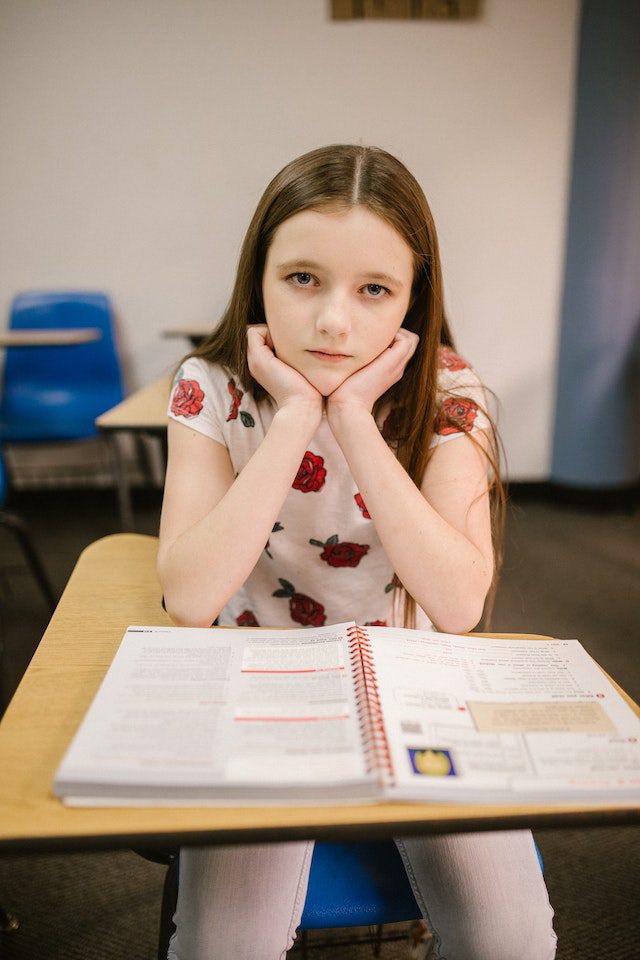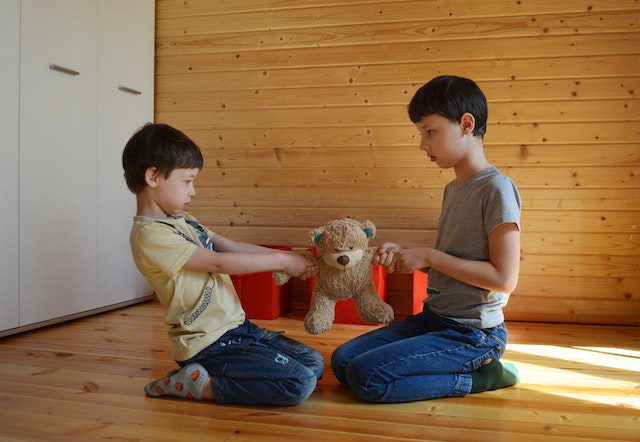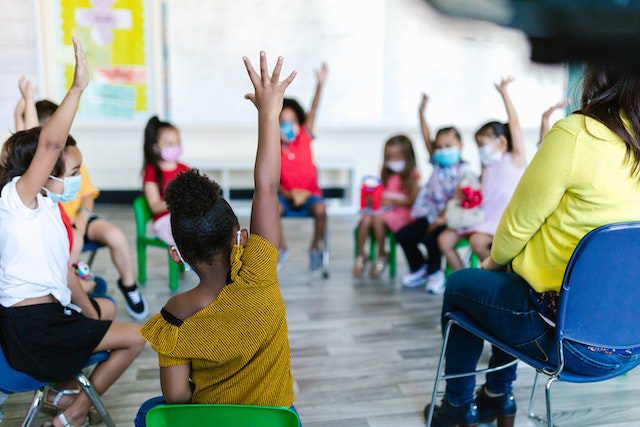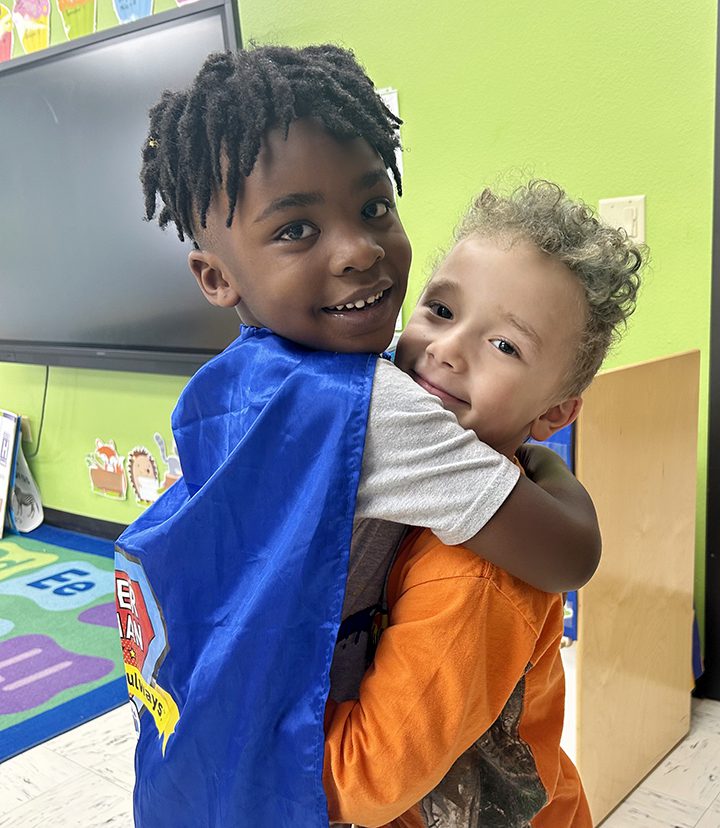What is Social and Emotional Learning and Why is it Important?
November 14, 2022
From toddlers to middle-schoolers, learn about social emotional learning and why it’s important for kids.

When it comes to learning and teaching social skills for kids, memorable quotes like “Treat others the way you want to be treated” may come to mind. While these types of quotes sound great, they may be easier said than done.
Rather than solely leaning on quotes to teach your children empathy, it’s better to engage in lessons that teach how to treat others with respect. Doing so can help develop the emotional strengths of a child. That’s where social emotional learning (SEL) comes in.
In the classroom—and at home—young children and teenagers alike are learning, developing, and building foundational skills that can help them grow into healthy, mindful adults.
In this guide, we’ll discuss what social emotional learning is, why it’s important to develop your child’s social emotional learning skills, and how it can help kids with socialization.
A Closer Look at Social and Emotional Learning
So, what is social and emotional learning, exactly? In its simplest form, social emotional learning (SEL) is involves lessons that children (and adults) can use to:1
- Understand their own emotions
- Show empathy towards others
- Communicate more effectively
- Build positive relationships
- Make decisions that positively impact themselves and others
Social emotional learning has become popular in many school curricula, from kindergarten through high school. Educators that incorporate social emotional skills into their lesson plans often focus on helping students manage and overcome daily challenges so that they’re more likely to succeed academically, socially, and emotionally.

That sounds fantastic, right? What’s more—you can get a jumpstart on an SEL program before they’re even in kindergarten! Starting from infancy, into toddlerhood, and beyond, you can encourage the foundation of age-appropriate SEL skills from home, such as:2
- Expressing what your child wants or needs to their caregivers
- Learning to form healthy relationships
- Regulating their emotions (within reason)
- Playing with other children
- Relating to others
Why is Social and Emotional Learning Important?
So, what’s the importance of social emotional learning programs when it comes to teaching about emotions?
Whether you’re working on expanding their social emotional skills at home or are learning how to integrate them into school lesson plans, those skills are helping your child accumulate essential building blocks.
Social emotional learning can have a positive impact during childhood and well into adulthood. As children, here are some of the reasons social emotional learning is essential:3
- It fosters problem-solving skills – Problem-solving is a skill your child can use from a young age, from resolving conflicts with friends to deciding what to do if they’ve left their homework at school. SEL helps children think independently and think through logical problem-solving steps as they get older.
 It allows them to discuss mental health – SEL embraces mental health by allowing kids and teens to talk about their feelings. Rather than bottling up negative emotions, they can express their thoughts, needs, and how they’re feeling to their peers, teachers, and caregivers.
It allows them to discuss mental health – SEL embraces mental health by allowing kids and teens to talk about their feelings. Rather than bottling up negative emotions, they can express their thoughts, needs, and how they’re feeling to their peers, teachers, and caregivers.
- It encourages empathy – With technology in abundance and children frequenting social media sites, it can be challenging to teach them the fundamentals of empathy. SEL teaches them social awareness of themselves and others. This can help them understand how another person may be feeling and how to show compassion for their experience.
- It teaches collaboration – Teamwork makes the dream work, and learning how to collaborate when your little one is still in school can set them up for success when they’re older and working in a team environment. Not only do SEL skills help kids to work in groups, but they also encourage them to work through disagreements, be a team player, and work with people they might not always see eye to eye with.
- It can improve academic performance – With skills like goal setting, organization, and time management, it’s easy to see how SEL can improve your shining star’s academic performance over time, whether they’re just starting preschool or moving onto gradeschool.
 It can help children work through their feelings – For younger children, SEL can help them understand their feelings and how to work through moments of frustration or confusion when trying something new. As a result, this can help develop a sense of curiosity and a love for learning for your child as they recognize their emotions and discover ways to handle them.
It can help children work through their feelings – For younger children, SEL can help them understand their feelings and how to work through moments of frustration or confusion when trying something new. As a result, this can help develop a sense of curiosity and a love for learning for your child as they recognize their emotions and discover ways to handle them.
- It teaches children to make decisions with care – Making the right decision isn’t always easy for young learners (or adults). SEL lessons model the steps involved in making responsible decisions, from understanding each possible resolution, considering the consequences of each, and finally choosing a resolution they can be proud of.
- It helps children create goals – SEL skills help children establish goals and teach them to create measurable steps they can follow to achieve their goals. Today, your preschooler may start by setting a goal to build the tallest tower of blocks. As they grow, they may set goals around getting an A on their next quiz or test. Regardless of the goal, the SEL skill of self-management can help them develop measurable goals they can monitor and attain.
 It helps them navigate disagreements responsibly – It’s not always easy to get along with everyone, and that’s a lesson your little one will learn. Fortunately, they can learn how to disagree with someone in a respectful manner so the other party doesn’t end up hurt or angry.
It helps them navigate disagreements responsibly – It’s not always easy to get along with everyone, and that’s a lesson your little one will learn. Fortunately, they can learn how to disagree with someone in a respectful manner so the other party doesn’t end up hurt or angry.
- It encourages kids to persevere – Rather than becoming discouraged because of something that didn’t go their way, children learn to push through difficult challenges and continue working towards their goals.
- It helps to minimize behavior problems – When your child can solve their problems, manage their emotions, and work with others, they may be less likely to have behavior-related issues.
- It can boost confidence – Grasping a combination of SEL skills can improve their self-confidence. If they feel more confident, they’re more likely to adapt to new situations, be more resilient in all facets of life, and give themselves the self-esteem they need to work harder academically and socially.
 It improves relationship skills – Most parents can agree that they want their children to learn to have positive relationships with other kids. This includes understanding the difference between healthy and unhealthy relationships, how to be a good friend to others, how to set appropriate boundaries, and how to solve problems when conflicts arise with their peers. Check out our Lynx Sets Boundaries book for some inspiration.
It improves relationship skills – Most parents can agree that they want their children to learn to have positive relationships with other kids. This includes understanding the difference between healthy and unhealthy relationships, how to be a good friend to others, how to set appropriate boundaries, and how to solve problems when conflicts arise with their peers. Check out our Lynx Sets Boundaries book for some inspiration.
- It nurtures a sense of community – Whether your little one is at home or at school, it’s important for them to feel like they belong in a community. SEL allows them to build supportive relationships and find common ground around topics that matter to them, which can help them feel supported and accepted by their peers, teachers, and you.
How Does Social and Emotional Learning Help With Socialization?
Before diving into how SEL can help with socialization, it is critical to recognize that all families and familial environments are unique from one another. While a school setting may allow some children to thrive socially, other kids may not have the same experience or have access to the same experience. Socializing with others and thriving in a social environment comes naturally to some children. They look forward to making friends on the first day of school and don’t look back when their caregivers drop them off.
 On the opposite spectrum, some children may find themselves feeling shy or uncomfortable in social situations, whether it’s their first day at summer camp or they’re in a small group in class and aren’t comfortable speaking up. It’s important to recognize your child’s sense of socialization in different settings so you can identify ways to support them and build connections that make them comfortable.
On the opposite spectrum, some children may find themselves feeling shy or uncomfortable in social situations, whether it’s their first day at summer camp or they’re in a small group in class and aren’t comfortable speaking up. It’s important to recognize your child’s sense of socialization in different settings so you can identify ways to support them and build connections that make them comfortable.
When it comes to social emotional learning in early education, there are various frameworks that parents and educators can follow to help children with socialization. The Collaborative for Academic, Social, and Emotional Learning (CASEL) created one of the most widely used frameworks,4 which focuses on teaching children the following five key skills that help with socialization:5
- Relationship skills – Relationship skills include the abilities you learn to create and maintain healthy relationships. Common relationship skills your children may learn in the classroom (and at home) include communicating clearly, actively listening, collaborating with groups, and asking for help or helping others when needed.
- Responsible decision-making skills – This skill revolves around being able to make logical and constructive choices. Children learn to factor whether or not their possible solutions are safe, whether they’re ethical, and whether they’ll have positive or negative consequences based on those choices.
- Social awareness skills – Being socially aware includes understanding the perspectives of others and empathizing with them. In the case of your little one, this typically consists of their friends, teachers, other adults, and people of different races or cultural backgrounds. SEL teaches them to appreciate diversity, be open-minded to others, and be respectful.
- Self-awareness skills – This skill relates to your child’s understanding of their thoughts and emotions and how they impact their behavior. With SEL, they can learn to identify their feelings, recognize their personal strengths and gain self-confidence.
- Self-management skills – Once your little one has learned to understand their thoughts and emotions, they can work towards controlling them to help achieve their personal goals and aspirations. Self-management skills they learn may include managing their stress levels, practicing self-discipline, learning organizational skills, and participating in goal setting.
Let Slumberkins Join You and Your Child On Your Social and Emotional Learning Journey
Making sure your little one’s social emotional needs are met can be challenging, but it’s absolutely achievable. In addition to learning SEL skills at school, you can incorporate social emotional development from the comfort of your own home.
If you’re looking for additional support on emotional intelligence, Slumberkins is happy to lend a hand to help you and your little one on your SEL journey. We proudly support the well-being of all children with early childhood social emotional learning tools that provide emotional support to help them make sense of their big feelings.
With kid-friendly books that reinforce positive social emotional skills and adorable fuzzy snugglers with a world of feelings they can relate to, you can spend time with your little one helping them improve social emotional learning skills.
Browse our selection of social emotional learning books and more to start your SEL journey today.
Reprinted with permission from Slumberkins
Photos courtesy of Pexels.com
Sources:
- “Why Is Social Emotional Learning Important?” Accredited Schools Online. Updated 16 September, 2022. https://www.accreditedschoolsonline.org/resources/social-emotional-learning/
- Jennifer, Robitaille.”How Early Can Youth Learn SEL?” Aperture Education. https://apertureed.com/early-can-youth-begin-learning-sel-may-earlier-think/
- “15+ Benefits of Social Emotional Learning in the Classroom.” Pathway 2 Success. 15 January, 2019.https://www.thepathway2success.com/15-benefits-of-social-emotional-learning-in-the-classroom/
- “What Is the CASEL framework?” CASEL. https://casel.org/fundamentals-of-sel/what-is-the-casel-framework/#self-awareness
- Aguila. Cap et al. “A Guide to the Core SEL Competencies [Activities and Strategies Included].” Panoram Education. https://www.panoramaed.com/blog/guide-to-core-sel-competencies
Note: Respectful Ways offers trauma-informed, social emotional learning curriculum for three age groups: PreK-2, 3-5, and 6-12 students using interactive, digital modules on compassion, perseverance, respect and responsibility.

This entry was posted in Blogs, RW In The News, SEL News and tagged sel news, social emotional learning. Bookmark the permalink.


 Our 1st graders loved the Be Kind: It Feels Good course. The Kindness Hunt and bucket filling activities were the best. Very engaging.
Our 1st graders loved the Be Kind: It Feels Good course. The Kindness Hunt and bucket filling activities were the best. Very engaging. The Bored, Get Creative module was perfect for our 4th graders pre-winter break. We talked about things they could do if “bored”.
The Bored, Get Creative module was perfect for our 4th graders pre-winter break. We talked about things they could do if “bored”.